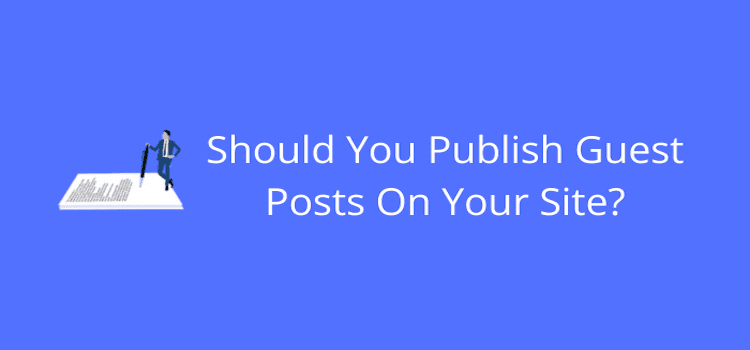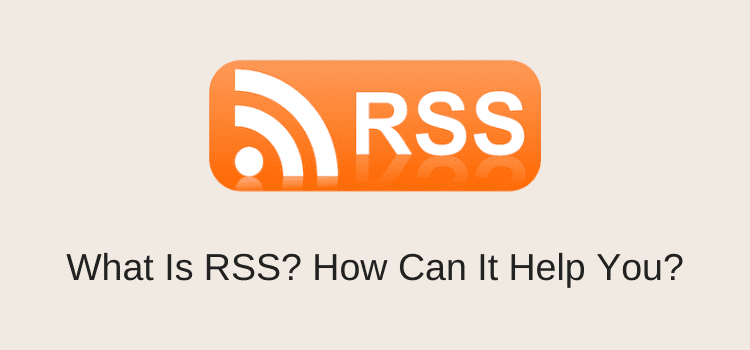
If you own a blog, you probably receive a lot of emails or messages requesting free or paid guest posts.
Writing and publishing new content can be time-consuming, so offers of free content seem tempting.
On top of that, if someone is willing to pay for you to publish content on your site, you might see it as a bonus.
But beware. Most of these offers are only to gain a quick backlink, and the quality of the articles can often be very poor.
Why do people want to publish content on your site?
Guest posting is a very old SEO technique.
The primary aim is to gain backlinks to a site to improve its position on search engine rankings.
Maybe ten years ago, guest posting worked. But today, the benefits are fewer.
Search engines like Google are well aware of the practice and can take action against you and the content provider.
This is what Google says about it:
When we detect sites engaging in either publishing or acquiring links with excessive sponsored and guest posting without proper link tags, algorithmic and manual actions may be applied, similar to affiliate links.
The link tags in the above quote are rel=“nofollow” and rel=“sponsored”.
For all guest articles, the nofollow tag should be used on all links. For a paid post, you also need to add the sponsored tag to all links.
By doing this, you can be relatively sure that Google won’t penalize you.
But most content providers won’t be happy about it, especially if they pay you. They want clean dofollow links.
The upsides and downsides
Listing the pros of accepting posts from other writers is easy because there are only two.
If you accept free guest posts, you can quickly add a lot of content to your site. This is why it is tempting if your site is relatively new.
For paid posts, the obvious upside is that you can earn $50-60 per post. That’s pretty easy money.
But the downsides make for a much longer list.
When someone pays you for a post, it is for indefinite placement.
It means you can’t delete the post; otherwise, you will get angry emails asking for a refund.
Another con is that with the advent of AI, most articles you receive will be AI-generated and will struggle to rank on Google.
Remember that the people who want you to publish articles on your site are not concerned about your SEO ranking. All they want is a backlink.
It is similar for free posts, but at least you can delete an article if you think it’s necessary.
However, this can lead to extra work, such as tracing and removing internal links or replacing the content with your own to avoid the page leading to a 404 error.
But the biggest downside to both is that 99% of the content these people offer will not improve your site’s ranking.
If you publish correctly, with the correct rep tags, at least you won’t suffer a penalty.
But there’s always the chance that search engines may downgrade your site if you publish a lot of guest content.
A handful of posts won’t be a problem, but you could be looking for trouble if it’s 30-50% of your site’s content.
My experience with guest posting
When I started my blog about fifteen years ago, I accepted quite a few posts to help build up my content.
I quickly discovered that some people were willing to pay me, so it was an easy way to make a little money to cover my site costs.
However, after a couple of years, I was in for a nasty surprise from Google and Bing. My site suddenly tanked on these search engines.
It took me a little while to realize what caused the problem. But soon enough, I discovered the error of my ways.
At the time, my site had just under 400 articles, of which around 100 were free or paid guest posts.
It took me months and months to rectify the problem because it wasn’t as simple as deleting the posts.
For the ones that had paid me, I had to deal with very unhappy customers and issue refunds.
The free content was a little less painful, but I had to write a lot of new content to replace it.
However, after some consideration, I kept a handful because the content was quite good.
It was a tough lesson to learn, and because of it, I stopped accepting guest articles.
As of today, I have only a handful of guest articles on my site out of nearly 850 articles, and I may delete or replace a few of these.
But even though I have noted that I don’t accept guest articles on my site’s FAQs, I still get 10-20 emails every day asking to post content on my site.
Needless to say, these messages head straight to the trash.
As a footnote, one last downside I discovered much later was that even though I deleted many posts years ago, they still appear on the Wayback Machine. You can delete content from your site, but nothing disappears completely from the Internet.
Conclusion
Guest posting isn’t a bad thing if you do it the right way.
It can be a good idea if you know the writer and the content is on target for your site and your readers.
However, even then, you should ensure that any links in an article are appropriate and labeled with a nofollow tag. This includes social media links.
I have recently published a couple of posts from a writer I know, and they both rank quite well on Google. So it can work.
But as for the unsolicited emails you receive offering free articles for your site, forget it.
Most of them are AI-generated texts and only want you to publish spammy links to unrelated or unsavory sites, which will harm your site.
If you want more content on your site, the best way is for you to write and publish more posts.
Yes, it takes much longer, but it’s the safest and surest way to build your site and attract more readers.
Related Reading: Outreach Campaigns For Articles And Backlinks Are Now Spam
Share This Article


